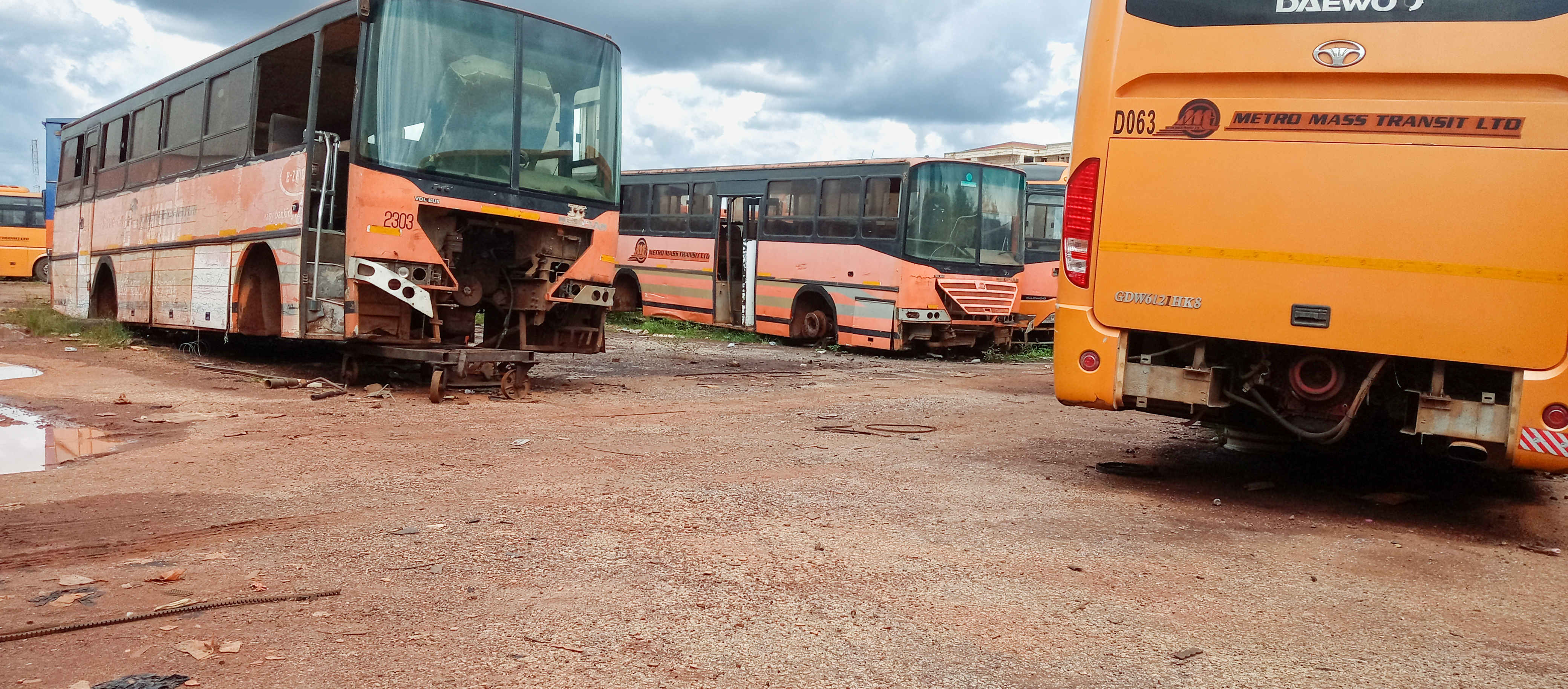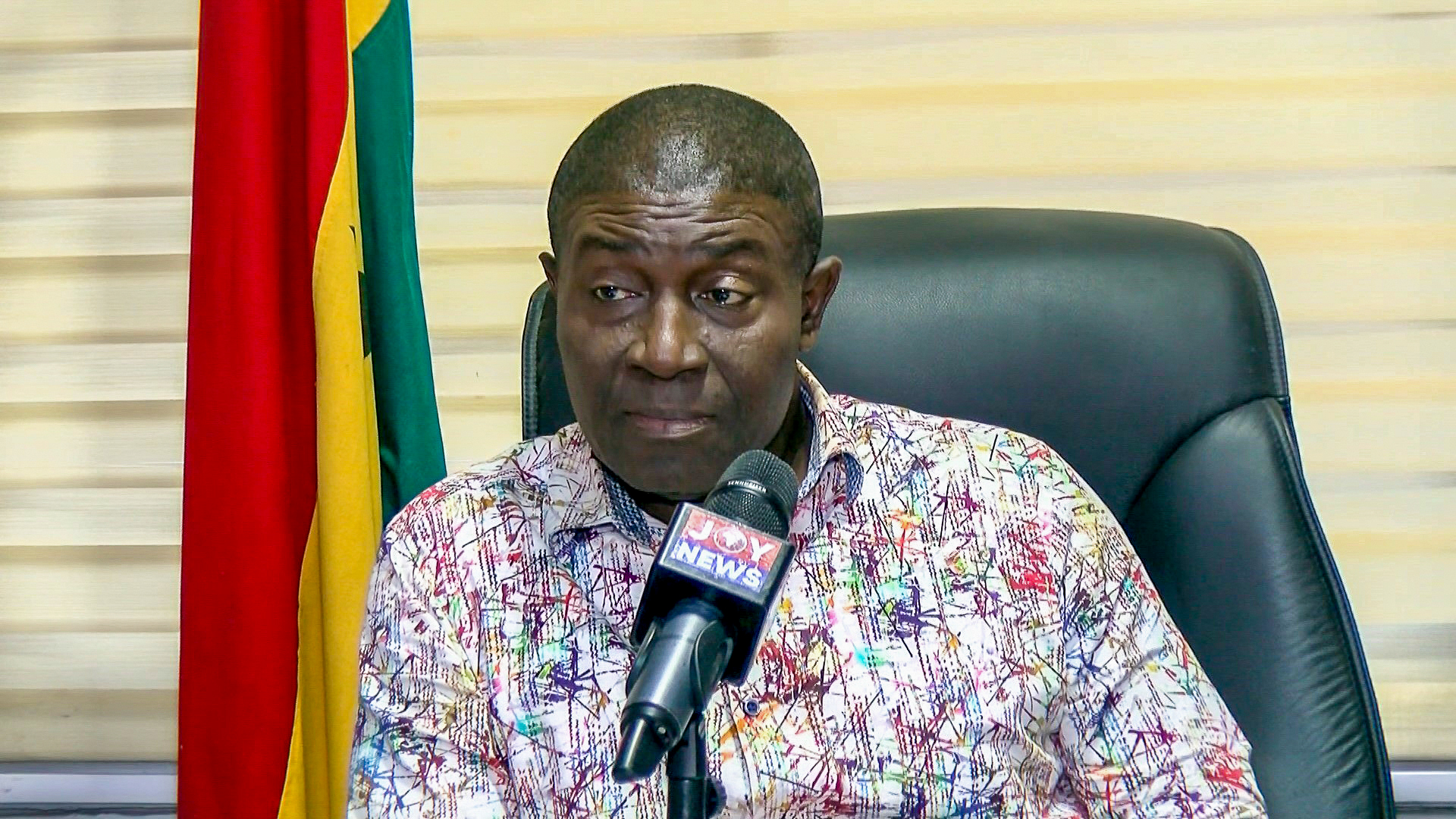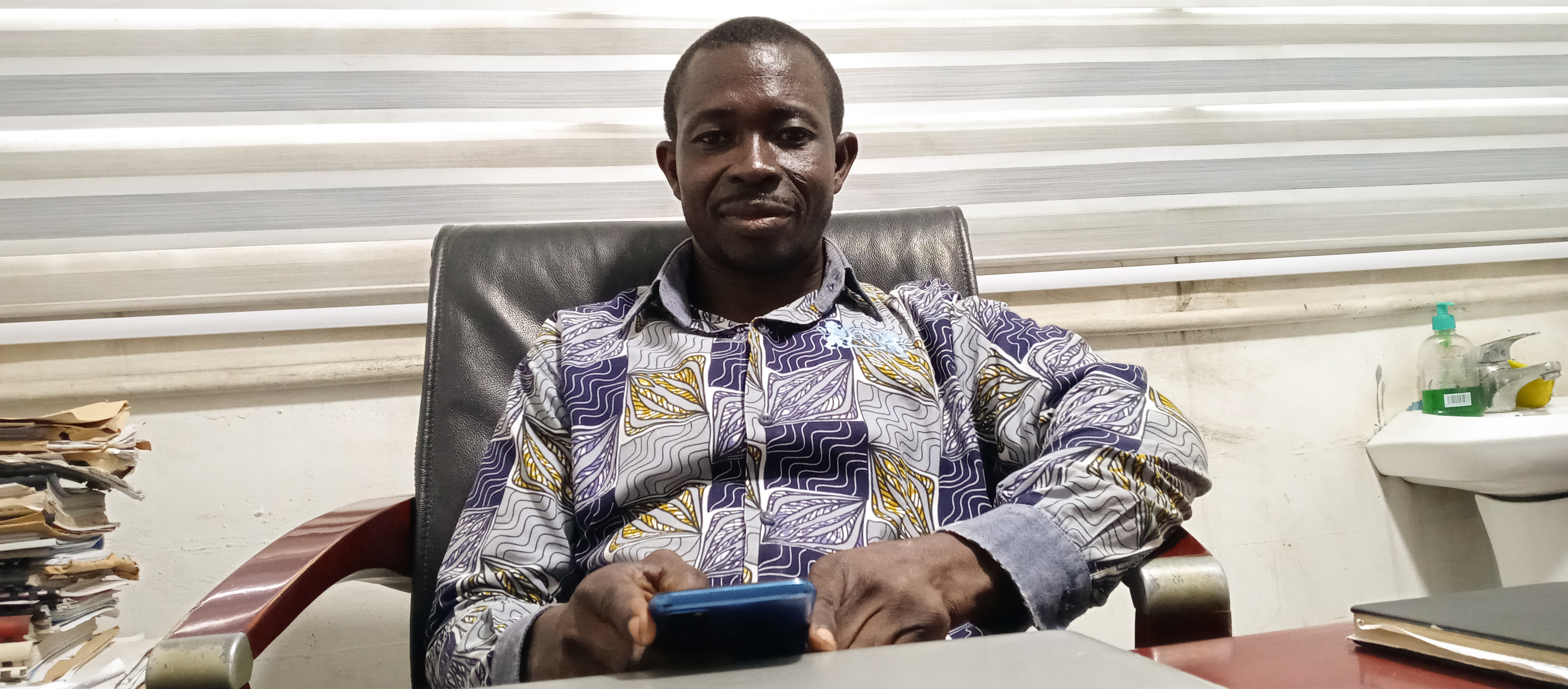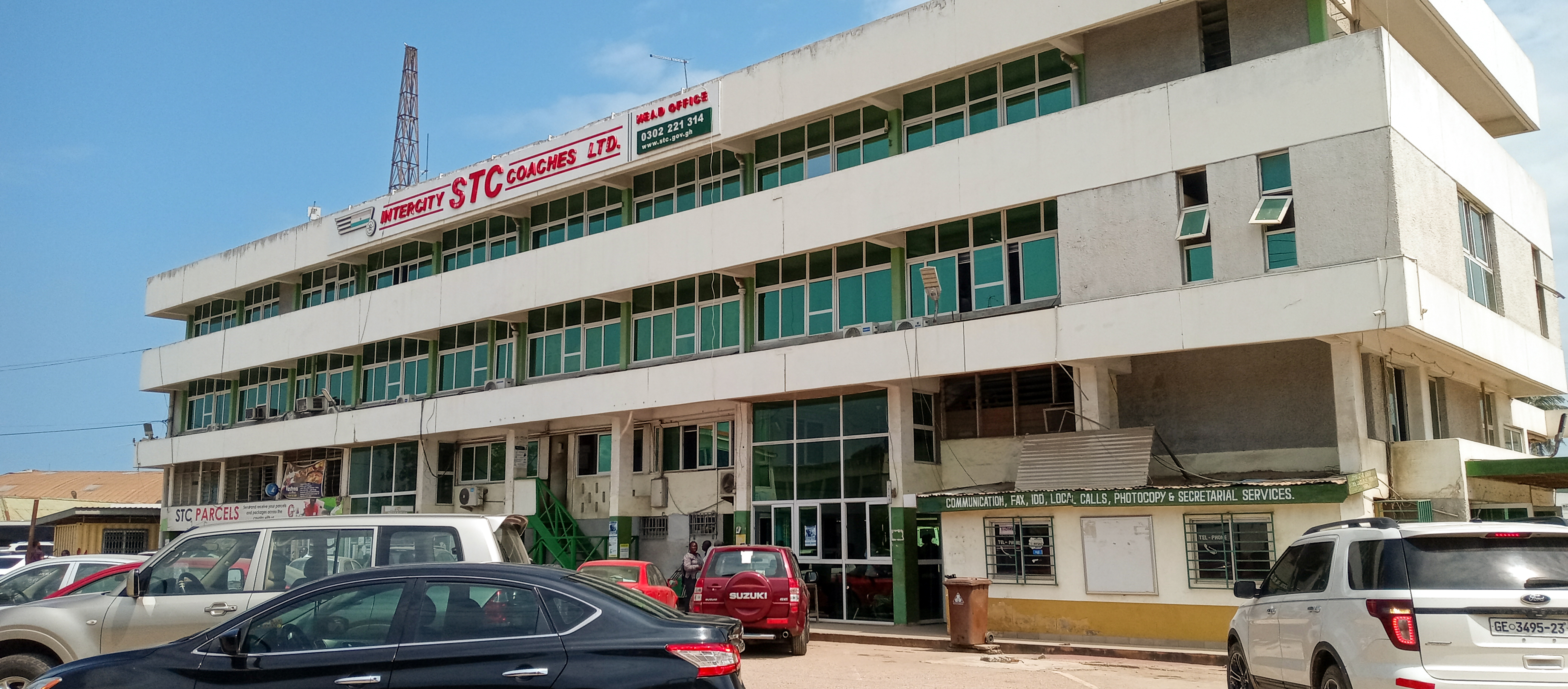Ghanaian journalist Enimil Ashon had it on good authority, he wrote in the Daily Graphic on 25 November 2022, that the President of his country had thought that a new candidate applying to head the then moribund State Transport Corporation (STC) in 2017 “needed a mental examination.” The subsequent presidential decision to give the job to that very candidate, a former MP called Nana Akomea, was therefore probably informed by the fact that no one else wanted it. State appointments in Ghana are often favours, allocated to friends and relatives of those in power, but having to manage the state bus company would have been more like a punishment. STC at that point had been so run down that, out of a fleet of 50 buses, 22 were permanently parked and staff were regularly on strike to demand unpaid salaries.
A stroke of genius
Surprisingly, the appointment of Akomea, a former parliamentarian and communication expert without any transport management experience, turned out to be a stroke of genius. In an article on his bus travel experience six years later, Ashon described how he had, firstly, booked his ticket to Ghana’s western region online without any hassle. Then, on the day of his travels, when he had overslept and was racing to the bus terminal, he had received a call five minutes before departure. “Good morning. Is that Mr Ashon?” a male voice had said. “I am calling from InterCity STC. You are booked to travel on our 6 o’clock bus to Takoradi. The bus is ready to move, but if you can get here in five minutes, we will wait for you.”

“This could not be happening in Ghana where nothing works – or almost nothing,” Ashon wrote, flabbergasted. He added that he was “surprised to see a Ghanaian company chase a customer in that respectful manner,” and especially so in the case of the very ill-reputed STC. When he had boarded the bus, just in time, he found it not only upholstered, well-maintained, and shiny, but also equipped with wifi and a professional driver.
“This can’t be happening in Ghana”
The sterling service Ashon reported had taken a couple of years to build, but the upturn at STC had started almost immediately after Akomea’s appointment. Since 2017, the company’s revenue had doubled each year: first to GH₵3 million (US$250,000), then to GH₵5 million a month. After stabilising the schedule and ensuring maximum utilisation of the buses, Akomea had introduced online ticketing, onboard wifi, USB ports, online parcel tracking, and passenger call-ins of the type that Ashon has received. STC also opened eight new terminals all over Ghana, one after the other, and built a functional Customer Service Unit.

Now, in 2023, the company employs over 800 workers, double the number Akomea’s administration had inherited, and they are all paid on time. Part of STC’s new appeal to customers is also the strict maintenance of the coaches, configured to have a maximum speed of 110 kilometers per hour, and the regulations it enforces on its drivers, trained at STC’s own driving school. They drive only six hours per trip; longer journeys require two drivers, with sleeping accommodation provided at all terminals.
Security guys won’t stop this bus”
As a result, police, often desirous to wrangle a “spot fine” out of motorists, don’t even stop the buses to check for faults anymore. It is a major benefit for passengers like Liberian journalist Tina Siatta Mehnpaine, who recently travelled on STC between Accra and Abidjan. “This company is safe. Security guys won’t stop this bus, unlike other buses, where this still happens frequently,” she says. “The appearance of the driver who has control over the moment, means that security (men) won’t disturb him,” agrees chairman of the STC staff union, Yaw Anaana, proudly.

And while Ghana’s potholed and poorly-signaled roads – combined with drunk-driving and speeding by motorists – are often the scene of car crashes, STC buses are seldom involved. “Their internal controls are noted for (good) driver recruitment, training, vehicle maintenance, and (avoidance of) fatigue and drunk driving,” confirms the Director of Regulations, Inspection and Compliance at Ghana’s Road Safety Authority, Kwame Atuahene.
Ten more buses to Kumasi
“We are a state institution, so we must adhere to the law,” says Nana Akomea in a brief interview. Not to be drawn into discussing the circumstances of his appointment, he prefers to talk about the management tools he used to turn the bus company around. “Such tools are the same, whether you are running a radio station, a ministry, or a transport company. It all starts with diagnosis, research to identify what the problem is. We connected the fact that passengers were not coming to the fact that our new buses [which had been allocated to STC previously, but never used] were parked far away.” Akomea knew that this did not make sense from a customer service perspective, especially not when private bus operators were using the centrally located bus terminal space. “When the traveler comes, he sees three bus company stands. Why would they travel another half a kilometer to STC? And indeed, once we established a parking, just one, in the (more centrally located) Circle area, we found that we filled fourteen buses to Kumasi, ten up from what had been four.” Private operators in that city took to the streets in protest against the resurgence of the newly invigorated state company, but to no avail. STC was back.
To see that the buses had to be where the passenger demand was, wasn’t rocket science. The question, therefore, was not about Nana Akomea’s management sense, but about the previous bosses’ lack of it. Who parks new buses far away from a central bus terminal in the first place?
Nepotism and political appointments brought mismanagement
In all fairness, the previous bosses had not been the first to mismanage Ghana’s once-proud State Transport Company. The downfall of the entity, award-winning and beloved by the public ever since the first independent government had refashioned it from a colonial facility to a commercial passenger service, had already started in 1972, when nepotism and political appointments had brought operational inefficiencies and mismanagement. It had stumbled along until 1995, when, under the influence of neoliberal policies punted by global financial institutions such as the IMF, a new government privatised the bus company along with a host of other previously state-run enterprises.
But privatisation had not solved the problem. Bad management continued, now privately, by politically connected people to whom their associates in the state had sold it off. The transfer of STC’s assets (including buses, counters, and parking spaces) to a consortium called VCL, funded with US$14,5 million provided by the state’s Social Security Bank, was conducted with an almost total lack of transparency. The new beneficiary owners would later be indicted by Ghana’s Serious Fraud Office, but their cases never went to trial.
Workers’ sacrifice
A subsequent new government in 2001, tacitly acknowledging that the divestiture had been fraudulent, turned the bus company back into a state enterprise and hopes that Ghana would provide its citizens with reliable transport after all were rekindled. But mismanagement would resurface again from 2008, with buses often standing idle and workers’ salaries remaining unpaid for months. Remarkably, it was those very workers who kept the company going at crucial times: in 2014, 450 junior and senior staff members even forfeited one month worth of salaries to help top up a shortfall to buy four new buses. “The company couldn't even pay our salaries, but the workers took it upon ourselves to sacrifice,” STC staff union chair, Yaw Anaana, remembers.
In 2016, another new government once again tried to bring STC back from the brink: this time, by doubling workers’ salaries and providing fifty new buses. But the lesson that throwing money at a problem rarely solves deeper issues was only learned from 2017, when the research-based and client-focused approach of new director Nana Akomea started bearing results. New national transport awards again then led to an arrangement with the Agricultural Development Bank to purchase no less than 100 new buses in 2020. While the timing could not have been worse, since at that very moment, COVID struck, by then the company was going so strong that it overcame even the forced passenger sitting reduction by 50 percent, the closure of Ghana’s borders with its neighbours, and the temporary loss of one third of revenue.
STC now runs at a profit
STC is now the only state enterprise in Ghana that generates enough money to both pay its workers and run its operations, including replacement of spare parts and other logistics, at a profit. “An STC worker today is better off (than other transport workers),” says Yaw Anaana. “We are talking about a Provident Fund, a pension scheme, medical bills, up to even Long Service Awards.”

Other transport services in Ghana are yet to learn from the STC success story. The metro urban and urban-rural MMT bus company, for example, which was established in 2003 to provide urban mass transportation services and boasts over 700 buses, is reportedly bedeviled with a myriad of problems, ranging from an inability to pay workers’ salaries to insufficient acquisition of engine oil and fan belts and chaotic bus terminals.
When ZAM asked the Ministry of Transport for comment on a series of questions, including whether Ghana’s government was now planning to screen candidate managers of state enterprises more generally on competency and expertise, Transport Minister Kwaku Ofori Asiamah invited us to meet him at his office. However, after initially agreeing to communicate on Whatsapp to set the date and time, Asiamah ignored all further messages.
Death trap roads
One problem a transport company cannot solve is the bad state of some important roads, some of which have become death traps in Ghana, while maintenance and reconstruction projects can take years or even decades. The Accra-Kumasi Highway, which connects Ghana’s two main cities, for example, has been under construction for the past fifteen years, with three successive governments failing to complete the project. Meanwhile, there is no construction activity at all on the dangerous Kasoa-Cape Coast-Takoradi road, as travelled by journalist Enimil Ashon, which has recorded several road crashes and deaths recently. “But from Accra to Kasoa, that stretch has been dualised,” spokesperson for the Road Ministry, Nasir Ahmed Yartey, responds when interviewed. “And we have a lot of proposals that we are studying to help complete the dualisation (of that road). Government has prioritised the dualisation of major highways (and) we’ve created by-passes.”
Read all the investigative articles in this series:
Public Servants | Kenya, Uganda, Nigeria, Ghana, Malawi
Malawi | A Reduction In Deaths
Uganda | A President’s Promise
Kenya | The Shiny Red Rescue Trucks That Could

